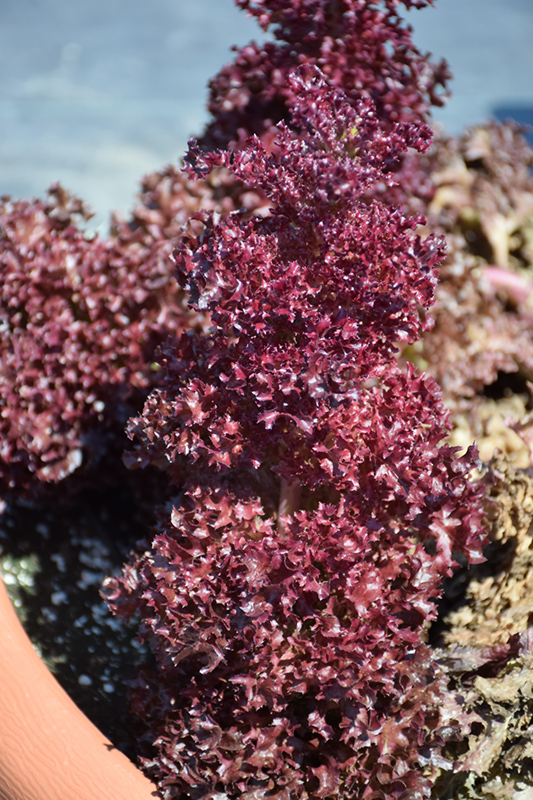Salanova® Red Incised Lettuce
Lactuca sativa 'Salanova Red Incised'
Height: 10 inches
Spacing: 8 inches
Sunlight:
![]()
![]()
Hardiness Zone: (annual)
Description:
A stunning focal piece for any edible garden or container; produces dark red, deeply incised, frilled leaves on compact plants; sweet flavor makes a great addition to any mixed green salad; slow to turn bitter
Edible Qualities
Salanova® Red Incised Lettuce is an annual vegetable plant that is typically grown for its edible qualities. The crinkled lobed dark red leaves are usually harvested from mid spring to early fall. The leaves have a sweet taste and a crunchy texture.
The leaves are most often used in the following ways:
- Fresh Eating
- Eating When Cooked/Prepared
Planting & Growing
Salanova® Red Incised Lettuce will grow to be about 10 inches tall at maturity, with a spread of 8 inches. When planted in rows, individual plants should be spaced approximately 8 inches apart. This vegetable plant is an annual, which means that it will grow for one season in your garden and then die after producing a crop. Because of its relatively short time to maturity, it lends itself to a series of successive plantings each staggered by a week or two; this will prolong the effective harvest period.
This plant is typically grown in a designated vegetable garden. It does best in full sun to partial shade. It does best in average conditions that are neither too wet nor too dry, and is very intolerant of standing water. It may require supplemental watering during periods of drought or extended heat. It is not particular as to soil pH, but grows best in rich soils. It is quite intolerant of urban pollution, therefore inner city or urban streetside plantings are best avoided. This is a selected variety of a species not originally from North America.; however, as a cultivated variety, be aware that it may be subject to certain restrictions or prohibitions on propagation.
Salanova® Red Incised Lettuce is a good choice for the vegetable garden, but it is also well-suited for use in outdoor pots and containers. It is often used as a 'filler' in the 'spiller-thriller-filler' container combination, providing the canvas against which the thriller plants stand out. Note that when growing plants in outdoor containers and baskets, they may require more frequent waterings than they would in the yard or garden.

